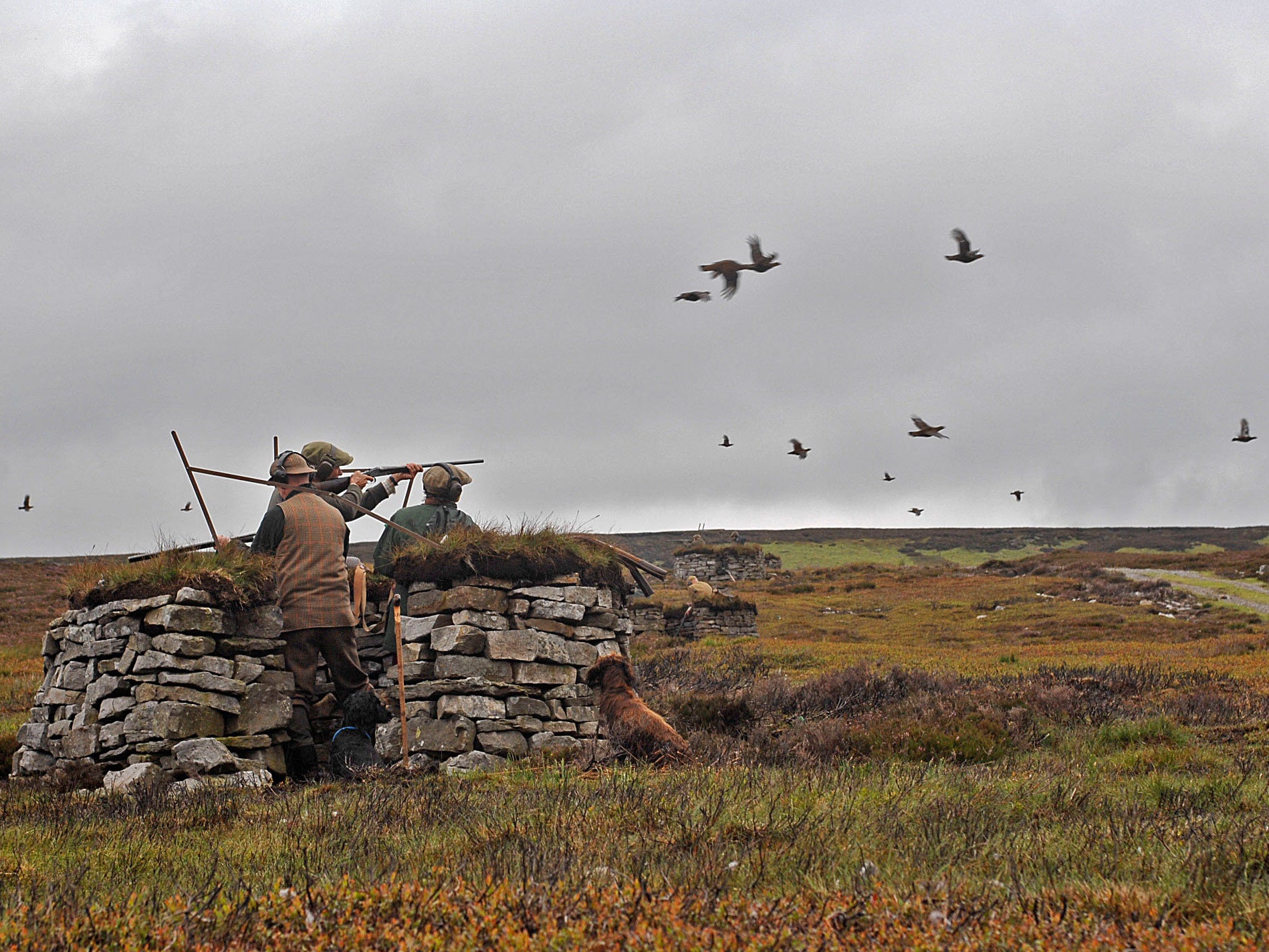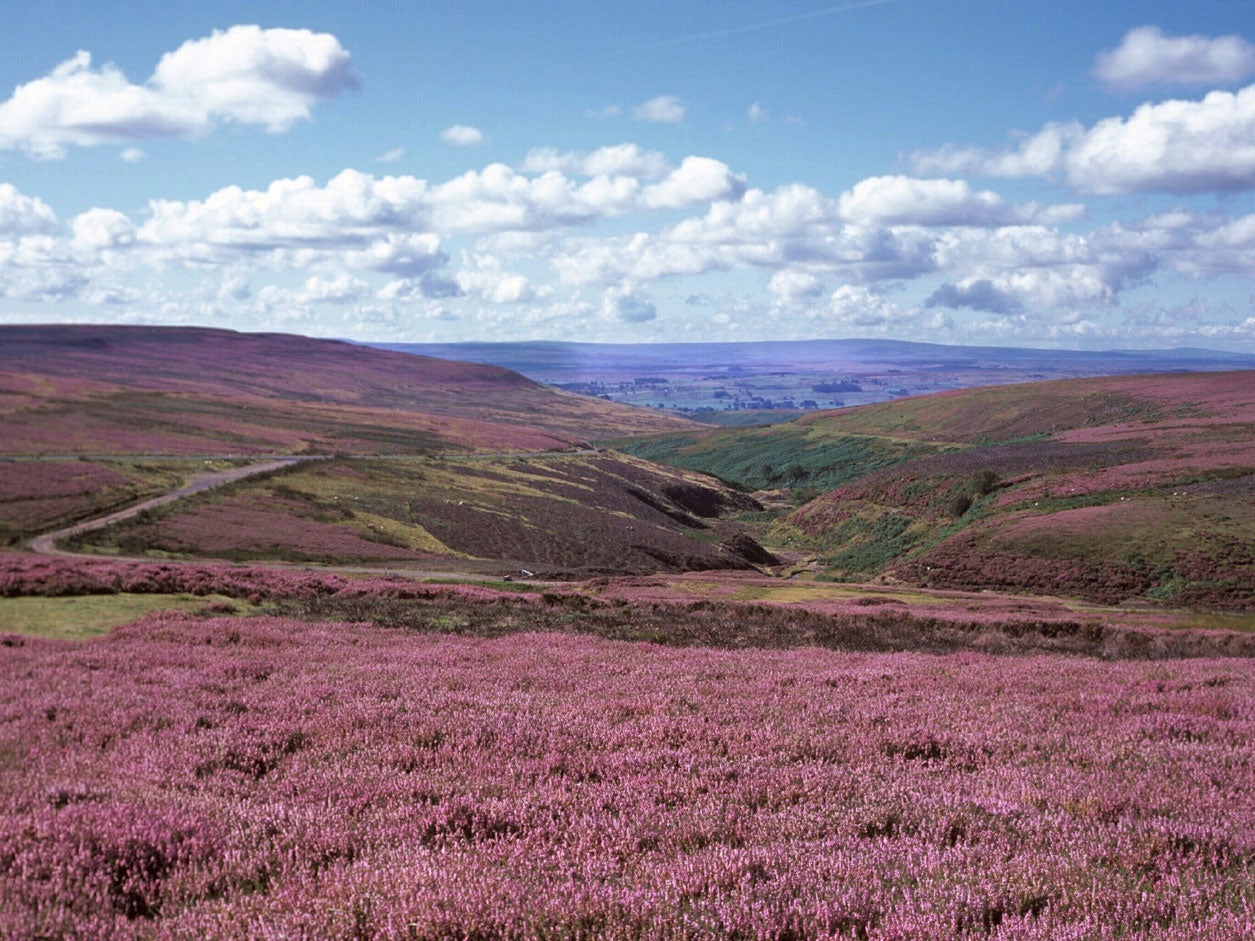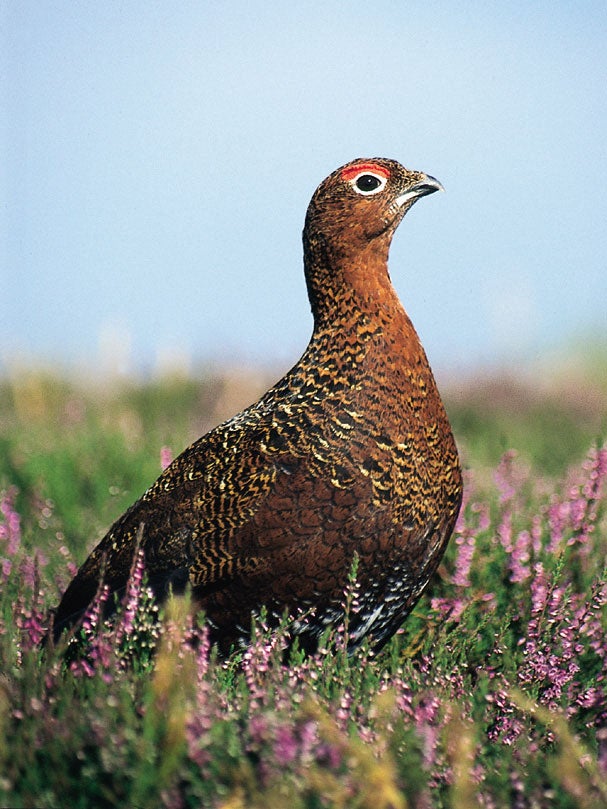The Glorious Twelfth: What is it and is it really glorious?
The day marks the start of the controversial grouse shooting season

The Glorious Twelfth may only feature on the calendar of a very select few but arguably has a huge impact on Britain’s wild birds.
The event, on 12 August every year, marks the first day of the grouse shooting season and has become a flashpoint for tensions between the game industry and conservationists.
Found in northern England, Wales, Scotland and Ireland, the iconic red grouse is shot in large numbers until the end of the season in December.
Popular among the elite and shooting enthusiasts, hunting holidays can cost thousands of pounds.
The £67 million industry creates hundreds of jobs, according to the Moorland Association, but there is continuing controversy about the shooting season’s impact on red grouse and other birds, including hen harriers, which have been illegally killed to protect the grouse.
The management of moorland to up grouse numbers, including burning heather and controlling predators including foxes, stoats and crows, has also been criticised.
England’s moorland owners have committed to a £52.5 million annual spend on conservation and seriously threatened species, helping them preserve 860,000 acres of heather.
The Moorland Association has defended grouse shooting, saying “careful game management” has helped at-risk species including the lapwing, curlew and golden plover.

Robert Benson, the chairman, said: “We have a vital part to play in stemming the decline of some of our most vulnerable birds.
“Without shooting income the consequences to wildlife - particularly the scarce ‘red listed’ breeds - would be severe.”
The country’s first hen harrier chicks for two years have fledged in north Lancashire, with some on land managed for grouse shooting.
But they and other protected birds have been found killed on land use for hunts, along with red kites, buzzards and other birds that prey on the red grouse.
The RSPB is among the charities calling for a “robust licensing system” to govern the management of grouse moors.
In an open letter to the Moorland Association last month, Dr Mike Clarke, chief executive of RSPB, wrote: “There is evidence that birds of prey continue to be persecuted, impacting on their populations, and many important sites for wildlife are being damaged or destroyed by intensive management activities.”
During the shooting season, hunters either walk across the moor and take aim at the startled grouse or shoot them out of the sky after they are “beaten” towards the guns.

The dead birds often end up in high-end restaurants and on butchers’ shelves to be roasted.
Marks and Spencer is not stocking grouse this year because it cannot secure sufficient numbers of “responsibly sourced and third party accredited” red grouse, while the Lush cosmetics chain has been inviting its customers to sign a postcard to the Queen, calling for action to protect the hen harrier.
Animal Aid conducted a report that demanded state licensing for shoots and gamekeeping to ensure wildlife protection laws are adhered to.
“It is obscene and primitive – and it is being subsidised by the taxpayers through the Common Agricultural Policy,” said Andrew Tyler, the director of Animal Aid.
“When it all boils down this is about extreme intervention in a very sensitive landscape to maximise the number of birds simply to kill them for pleasure.”
Join our commenting forum
Join thought-provoking conversations, follow other Independent readers and see their replies
Comments
Bookmark popover
Removed from bookmarks